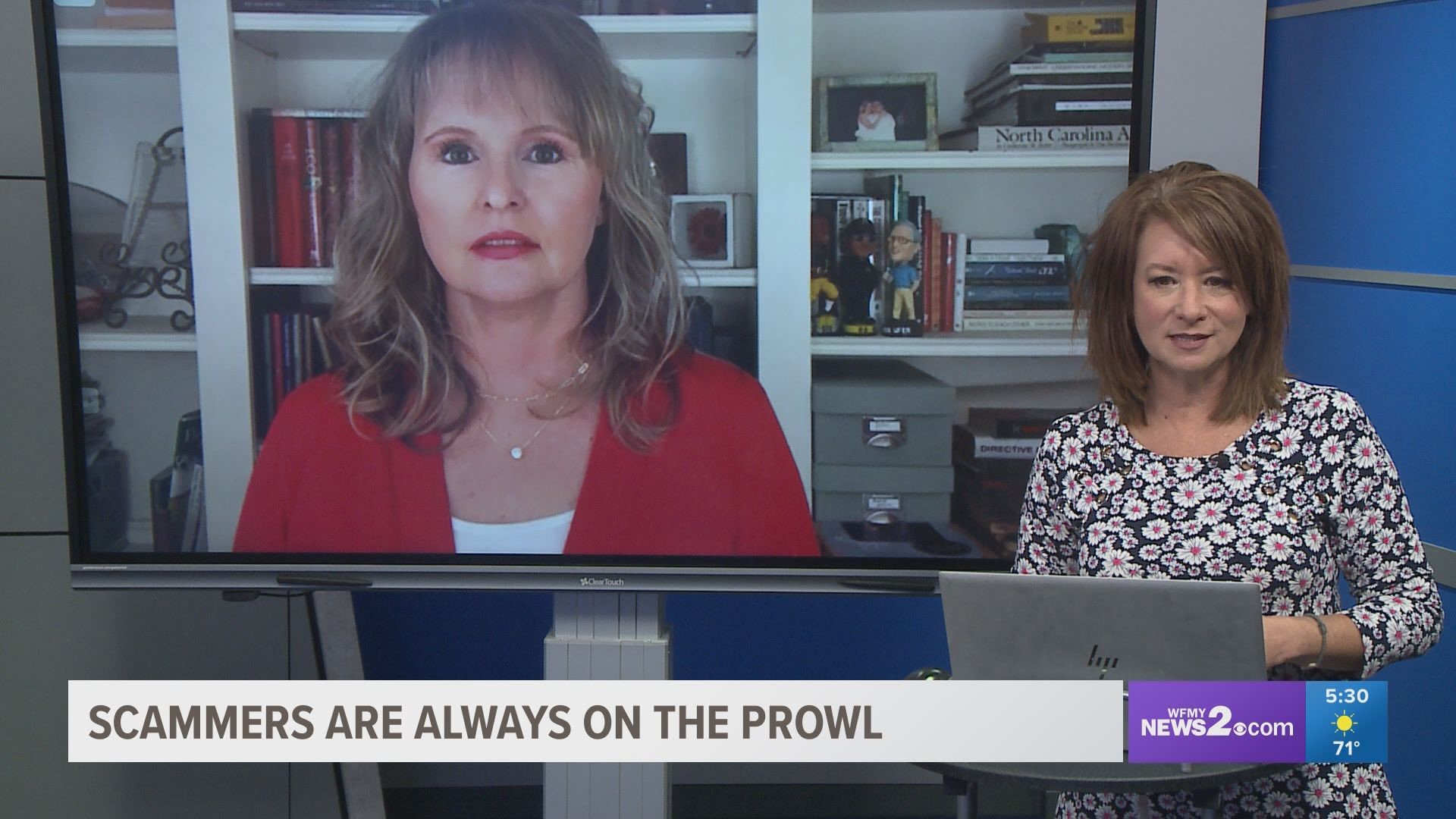GREENSBORO, N.C. — Scammers are getting more and more creative when it comes to getting your hard-earned money. It can be frustrating.
We spoke with Lechelle Yates from the Better Business Bureau to learn what new tactics scammers use and how you can protect yourself.
Online purchase scams
Many scams happen when people think they're buying something. Yates says footwear and clothing are the most counterfeit product types.
The Better Business Bureau studied online purchase scams and found common tendencies.
People often fall victim to scams when they find great deals. They're so excited to get a discount that they don't stop and think. Yates urges people to be cautious during the holiday season. Scammers will offer popular products for great deals, only for someone to realize they've been scammed.
Yates says people often get tricked on Facebook and Google. The BBB's study found five out of 10 people lost money because they bought something off of either Google or Facebook. They didn't actually buy anything. They got scammed.
Yates says if something seems too good to be true, it probably is. She provided tips for knowing something is legitimate.
- prominently displayed contact information
- a visible return and refund policy
- the BBB Accredited Business seal
- simple language/ correct spelling
- positive customer reviews
Account takeovers
Account takeovers happen when scammers get into your account. Instead of just making a few purchases, the scammer will change the password or pin to limit your access. They'll then reroute communication them, so you don't know you've been scammed until much later.
Yates says some best practices include verifying with a company that they sent you a message. You should also never click on links from someone you don't know.
Text scams
Yates says she saw scammers use the pandemic as a way to exploit people. They would send messages pretending to be a company, so people would click on a link. This would then give scammers access to their personal information after the person logs into their account.
Yates provided three examples of scam text messages reported to the BBB.
- “COVID-19 REFUND. VERIZON COMPANY is giving out $950 to all users of our Verizon service, If yes, kindly text your Verizon”
- “Due to the pandemic, Hulu is giving everyone a free 1-year subscription to help you stay at home. Get yours here [link]."
- "Netflix.. Sorry for the coverage issues... Here's a little gift: [link]"
The scams aren't limited to Hulu, Netflix and Verizon. Scammers can use any company to try to deceive you. The messages don't originate from those companies. Verify all messaging if you're unsure.

